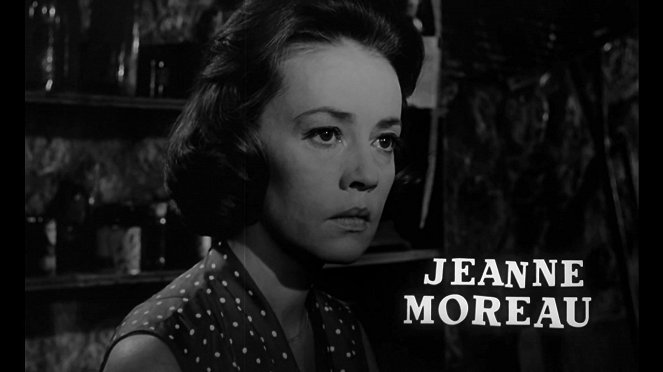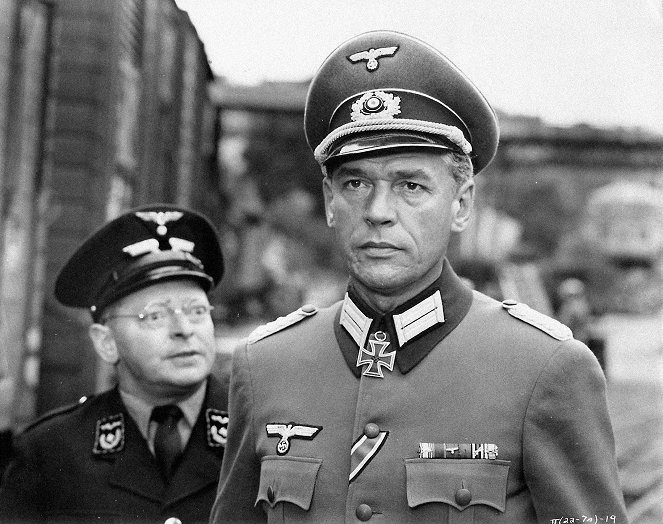Musik:
Maurice JarreBesetzung:
Burt Lancaster, Paul Scofield, Jeanne Moreau, Suzanne Flon, Michel Simon, Wolfgang Preiss, Richard Münch, Jacques Marin, Howard Vernon (mehr)Streaming (4)
Inhalte(1)
Paris, August 1944 Während sich die alliierten Armeen der Stadt nähern, lässt der kunstbesessenen deutsche Oberst von Waldheim eine riesige Sammlung gestohlener französischer Gemälde in einem Zug Richtung Berlin verladen. Bei dem Versuch, den Kunstraub zu vereiteln, wird ein allseits beliebter Eisenbahner getötet. Doch nun setzt Bahninspektor Labiche, ein Mitglied der Resistance, alles daran, den Zug zu stoppen, koste es was es wolle. All sein berufliches Können nutzt er jetzt zum Zweck der Sabotage Er lässt Gleise lockern, Bahndämme zerstören und nimmt sogar Kollisionen in Kauf. Ein hoch spannender Kampf um Gerechtigkeit und Vergeltung entbrennt. Doch am Ende stellt sich die Frage, ob ein Kunstwerk ein Menschenleben wert ist. (Verleiher-Text)
(mehr)Videos (1)
Kritiken (4)
Hinreißend – das ist das Wort, das Der Zug am besten charakterisiert. Frankenheimers ausgeschmückter Actionfilm sieht ganz und gar nicht wie ein 64 Jahre altes Werk aus. Er muss sich auch heute, in der Zeit von digitalen Effekten und zittrigen Kameras, für nichts schämen. Glauben Sie es nicht? Das "Rennen" der Lok und der Spitfire, der perfekte Unfall oder das unheimliche Finale (ich brauche eure Lkws) werden Ihre Meinung ändern. Zu der ausgezeichneten Stimmung tragen auch der harte Mitarbeiter der Eisenbahngesellschaft Lancaster, der Oberst und Kunstliebhaber Scofield, das Schwarzweißbild, Jarres Musik und die oftmals einfallsreichen Positionen der Kamera bei. Kurz und gut alles. Ich mag Züge, ich mag Männerfilme aus dem Zweiten Weltkrieg und ihre wortkargen Helden. Ich finde es gut, wenn die Deutschen nachdenken, wenn sie z. B. auch sympathisch sind und wenn sie nicht nur als doofe Würstchenfresser dargestellt werden, die auch ein Fünfjähriger überlistet… Fünf Sterne.
()
Ein erstklassiges Filmemacher-Handwerk, das mich mit seiner Präzision (und der thematischen Verbindung) an Singers Operation Walküre - Das Stauffenberg Attentat erinnerte. Ein spannender Thriller, der dank einem schlauen Drehbuch dem Publikum einen Schritt voraus ist. Die Spannung wird prima gesteigert. Der Film enthält auch viele und – im Hinblick auf die Zeit seiner Entstehung – effektvolle Explosionen. Und vor allem verfügt er über die exzellent geschriebene sowie gespielte Negativfigur von Scofield. Die Kompromisslosigkeit und Nazi-Überheblichkeit verbinden sich bei ihm mit der Schwäche für Kunst, konkret für Gemälde, die er mit dem Zug aus Paris nach Deutschland bringen möchte und die – nach seinen Worten – "ein Stück Fleisch“ in der Darbietung vom Volkshelden Lancaster nicht schätzen kann. Deshalb weiß er nicht, wofür er kämpft. John Woo muss diesen Film lieben. Der fünfte Stern ist ihm nur knapp entkommen.
()
No idyll with romantically whistling train, merrily chuffing though the glorious French landscape, but a reality of deafening iron monsters spouting steam and oil at the end of occupation. Basically the very best and most suspenseful way of paying respect to the memory of the French railroad Resistance. Apart from one detail. The character played by Paul Scofield. Such a crudely negative character stands out like a blot on the landscape in this movie. You would expect him to torture his prisoners and laugh crazy Huron laughter while doing so. But in fact, all the characters are really “gray", and only he is clearly black-and-white, although the motivation side is convincing. He would have fitted in well in a naively delivered movie, but here he just spoils the aura of convincingness.
()
Ideologically old-world but formalistically progressive, The Train can be seen as bridge between the era of epic war movies of previous years and the action-adventure flicks in a war setting that came in later years. From the former category, The Train takes a stellar ensemble cast, as well as a sombre ethos and grand moral questions, which form the film’s backbone. From the latter category, it can be said that emphasis is placed on the action scenes and spectacle. But none of the films that came later (whether we take the Clint Eastwood movies or a bunch of Italian genre flicks as examples) can match The Train in this respect. Frankenheimer stages captivating sequences in which he uses precise compositions with multiple planes where he constantly makes the presence of the characters felt within that grand action. The most important thing here is the breathtaking moments when the actors are present at or directly involved in dangerous feats in close proximity to passing trains, crashing locomotives and exploding railway stations. As pointed out by Christopher McQuarrie, who holds the film up as a reference work for the new Mission: Impossible, in a number of scenes it is amazing how they managed to do this in an era before digital effects and how many sequences give the viewer the feeling of being close to the action, because everything is simply captured in the camera as it happens instead of using optical effects and rear projections. Also, in many of the suspenseful passages, the filmmakers take care to set the action in what are clearly actual places, which are used thoroughly to dramatic effect in the given sequences. As a result, the one or two scenes shot in a studio or in modified interiors inevitably seem out of place.
()



Werbung